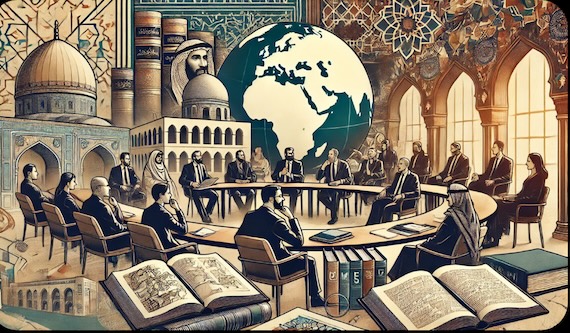Committee on Academic Freedom | Middle East Studies Association of North America | –
Letter to the Claremont Colleges library condemning the censorship of the title and abstract of Professor Bilal Nasir’s scheduled lecture in the Claremont Discourse series
- Through an analysis of immigration policies emerging from the L.A. 8 case, Middle East foreign policy under the Reagan Administration, and the deadly exchange between the Los Angeles Police Department (LAPD) and the Israel Defense Force (IDF) and Mossad leading up to the 1984 Olympics, this talk documents how a rising global Los Angeles was not only defined by migration, a service economy, and financialization, but also Zionism and anti-Palestinian and anti-Muslim racisms.
- Focusing on the legal and political dimensions of the L.A. 8 case, the Reagan Administration’s Middle East foreign policy, conflicts between LAPD and international forces prior to the 1984 Olympics, Dr. Nasir examines how the global and local dynamics intersected at this time and shaped the city’s identity.
Chair, Committee on Academic Freedom
Professor Emerita, University of Southern California



 © 2026 All Rights Reserved
© 2026 All Rights Reserved